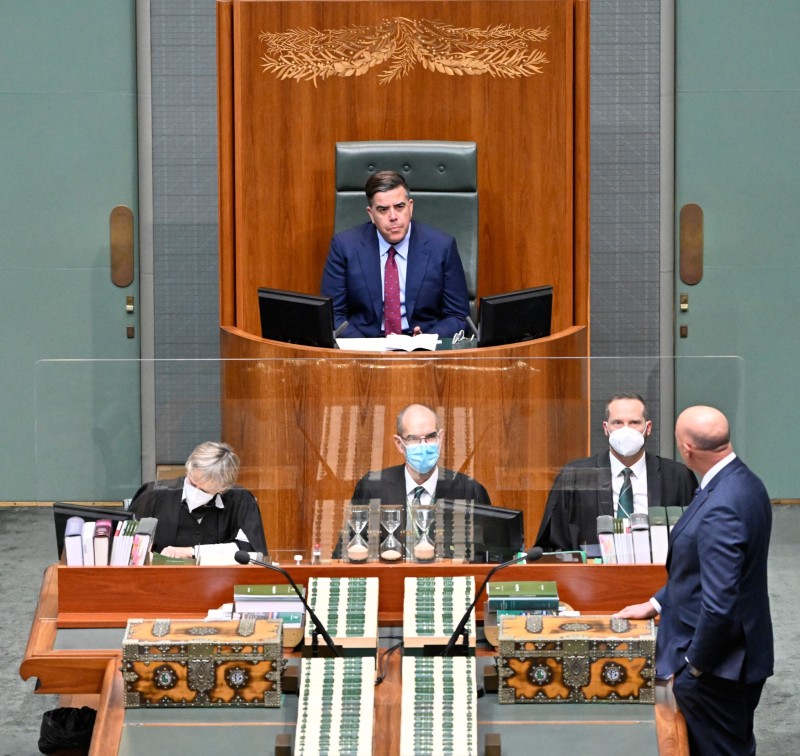Would it be fairer if the Speaker was from the crossbench?
The Speaker of the House of Representatives

Penny Bradfield/DPS Auspic
Description
In the House of Representatives, the Speaker sits in a large, elevated, wooden and green leather chair behind a desk. From this position, the Speaker can see and hear all other members and all other members can see the Speaker. The Speaker is a member of the House of Representatives who has been chosen to run the meetings of the House.
Permission should be sought from DPS AUSPIC for third-party or commercial uses of this image. To contact DPS AUSPIC email: auspic@aph.gov.au or phone: 02 6277 3342.
Thanks for this great question!
Not necessarily. Crossbench members – minor parties and independents – are no more or less biased than those from the major parties. Each member of parliament holds their own political views. Regardless of their background, the Speaker is expected to be fair and to treat all members equally.
There is not a rule saying that the Speaker of the House of Representatives must be from the government but this is what usually happens. This is because the government holds the majority of seats in the House and normally votes for someone from their own team. However, there can be exceptions. In 2011, Peter Slipper – a member of the opposition – was elected Speaker. He then left his party and became an independent while he was Speaker. There are several examples of non-government Speakers since Federation.